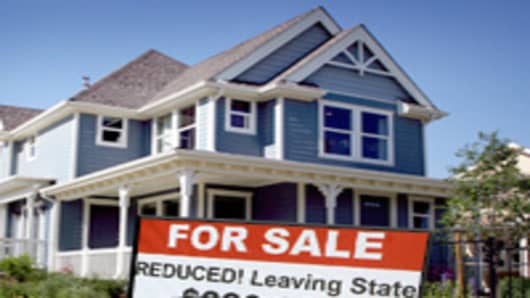"Contrary to the assertions of many economists and others, the boom and bust in housing over the last decade was not primarily caused by low interest rates, reduced down payment requirements, or laxer underwriting standards."
My sixth grade English teacher always told me never to start with a quote, but in this case, how could I not?
Read it again, if you will; I read it three times just to make sure.
Yes, after years of bashing the mortgage industry for lax underwriting, bashing the Federal Government for negligently low interest rates and blaming investors for vacuuming up homes with no-money-down loans, three guys from Harvard say they're all off the hook.
Edward Glaeser, a professor of economics who directs the Rappaport Institute and the Taubman Center, and his colleagues, Joshua Gottlieb, a doctoral student in economics at Harvard; and Joseph Gyourko, a professor of real estate at the Wharton School will release their paper: "Did Credit Market Policies Cause the Housing Bubble?" Wednesday at a conference at the Federal Reserve Bank of Boston..
"It isn’t that higher mortgage approval rates aren’t associated with rising home values. They are," they add. "But the impact of these variables, as predicted by economic theory and as estimated empirically over many years, is too small to explain much of the housing market event that we have just experienced." The authors looked at the 1.3 percent drop in real interest rates between 2000 and 2006 and concluded that it was responsible "for only a 10 percent rise in prices." Most housing markets in the U.S. saw far greater price jumps during the housing boom, and nationally the increase was around 30 percent. Boston saw a 54 percent price increase, they note.
The part of this study I find most fascinating is the bit that flies right in the face of our own Fed Chairman Ben Bernanke's assertions. "Reduced down payment requirements did not greatly contribute to the housing bubble," claim the authors. "On average, the share of the purchase price covered by a mortgage was basically unchanged over the course of the boom, rising from about 84 percent in 1998 to 88 percent at the peak of the bubble in 2006." It then dropped off to 80 percent by 2008 after the mortgage/housing market crash.
They also argue that if you look at the top quarter of buyers who borrowed the most, in 1998 they borrowed 96 percent (or 96 percent LTV), whereas in 2006 they borrower 99 percent on average, so only a 3 percent difference for the big borrowers.
I found a lot of this quite hard to digest, given the debate I've been covering for the last four years, from peak to trough to recovery. So I called Prof. Glaeser, who very affably took my questions.
Diana: If loose lending and over-borrowing didn't cause the housing bubble, what did?
Prof. Glaeser: The historical relationship between these variables and the housing market is just to small to explain this. In terms of understanding it, we believe that neither we nor anyone else understands this. The mechanics of bubbles, they certainly are associated with all sorts of irrational exuberant beliefs of future price changes. That's' always been true of housing. What specifically caused this thing? A strange cocktail that brought together things that created the bubble.
Diana: But didn't subprime lending drive prices higher by bringing certain fiscally ineligible buyers into the market?
Prof Glaeser: The subprime mortgage market is different than the housing price boom. We think that it did drive prices higher. But even the historical relationship of LTV is a very small fact relative to the boom that occurred.



